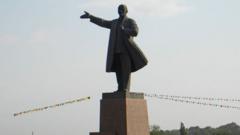In his address, NATO's head emphasized the need for substantial financial commitments from member states, highlighting potential political challenges and existing budget constraints.
NATO Chief Demands Significant Military Spending Increases Amidst Russian Threats

NATO Chief Demands Significant Military Spending Increases Amidst Russian Threats
NATO's secretary-general calls for member nations to boost defense budgets to counteract escalating tensions with Russia.
The secretary-general of NATO, Mark Rutte, made a bold appeal in London on June 9, 2025, urging member countries to radically increase their military spending as the alliance faces mounting pressures from Russian aggression and a retreating commitment from the United States. Rutte, a former prime minister of the Netherlands, advocated for an ambitious target of 5 percent of gross domestic product (GDP) to be allocated to military and defense-related expenditures.
Rutte’s call to action is particularly timely as it precedes the NATO summit scheduled for June 24 and 25 in The Hague, where he aims to secure agreement on this new spending benchmark. The proposal stems from critiques, notably from U.S. President Trump, who has long asserted that the financial burden of NATO disproportionately falls on the United States.
While Britain has committed to increasing its military budget to 2.5 percent of GDP by 2027, funded by reallocating overseas aid, Prime Minister Keir Starmer is aiming for a more ambitious 3 percent target over the next decade. However, he faces challenges in outlining a clear timeline without first determining funding sources.
Experts warn that meeting the proposed 5 percent spending target could entail difficult political decisions for the UK, which is already grappling with fiscal constraints. Currently, Britain allocates 2.3 percent of its GDP to defense—more than France or Germany, yet still trailing behind the United States at around 3.4 percent. In a climate of tightening budgets, the hurdle of escalating military funding will test the resolve of NATO member nations in the face of geopolitical uncertainties.




















